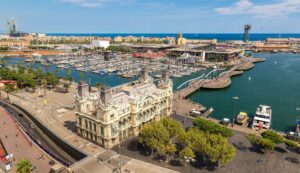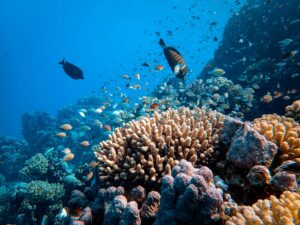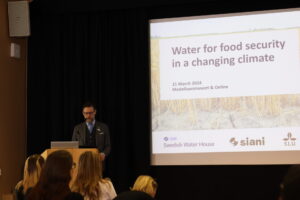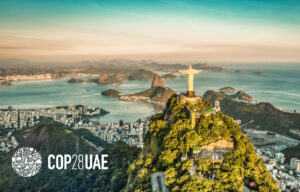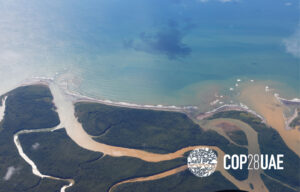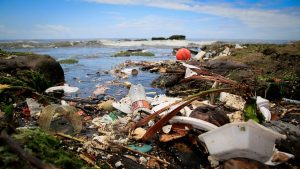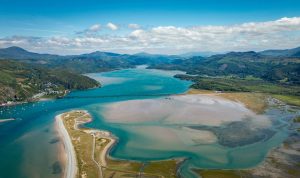- SIWI – Leading expert in water governance
- /
- Latest
- /
- Valuing Water from Source to Sea
Valuing Water from Source to Sea
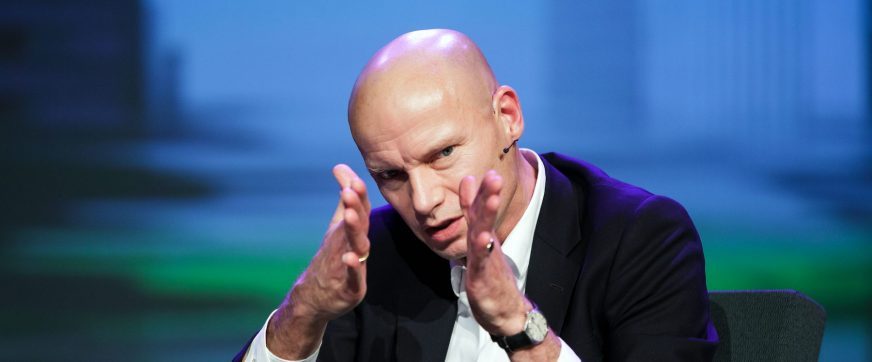 Henk Ovink, Special Envoy for International Water Affairs
Henk Ovink, Special Envoy for International Water Affairs This year the theme of World Water Day focuses on valuing water and how to harmonize perspectives that value water differently. How does the source-to-sea approach to management help us achieve sustainable development with this in mind?
We often argue that “to value water is a verb. It means actually doing something”. Considering that water crises around the world are worsening, societies seem to systemically de-value water. Therefore, something in the system must change. If not, we will merely address symptoms, not causes. The source-to-sea approach is absolutely crucial in our quest for sustainable development. It helps us identify where the behaviour of some in one part of the source-to-sea system causes negative impacts on the values of others.
It helps to understand the bigger picture.
Human activities on land not only pose a substantial burden on our freshwater ecosystems, but eventually also affect the marine environment. Rivers carry untreated wastewater, nutrient loads, heavy metals, pharmaceuticals, noise, and (micro)plastics into the seas, causing ecological damage, risks to health, and loss of livelihoods.
The importance of healthy oceans cannot be overestimated: 80 percent of all life on Earth can be found in the oceans. They provide food, employment, and can also help mitigate climate change by absorbing CO2 and heat. They are the true lungs of our planet, providing us with more than half of the world’s oxygen. But despite all this, SDG14 continues to receive too little attention.
It is for this reason that the Netherlands has been a strong advocate for valuing water from source-to-sea. If we want to address any of the problems in our oceans, we need to start at the source. Only by approaching our water systems as a whole, in which we manage our land, freshwater, coastal and marine resources in a holistic way, can we begin to imagine a sustainable future.
We have to acknowledge the interconnectedness of water, as it flows through all our ecosystems and lives; the way water is used by some has consequences for water-related values of others. We need to bring together the values and perspectives from stakeholders in freshwater and coastal communities. Water connects us all; hence, we must act together and value both our freshwater and marine ecosystems in a new way.
World Water Day is happening against a backdrop of challenges such as climate change, pollution, and degradation of the source-to-sea systems in the Netherlands and around the world. Where do we begin to overcome them?
Tackling such global challenges cannot be done by directing our efforts towards one single issue at a time. We live in a world where our actions on the global, national and local scale have a ripple effect across ecosystems and communities. We must shift to an integrated approach to tackle the biggest problems of our time by facilitating cooperation between all sectors and actors for sustainable development.
This means truly understanding and addressing the interdependencies of the different SDGs as well. No SDG can be reached alone. Recognising the dynamics between land and oceans is the basis of such an approach. Only by effectively including source-to-sea strategies in policy and recognising the value of water for our cultures, health, food production, households, economies, education, and natural world can we even begin to shape a way forward.
The Netherlands has been active with the Action Platform for Source-to-Sea Management with cooperation through shared activities. What have been the benefits to you in working with the Source-to-Sea community?
The work of the Source-to-Sea Action Platform that highlights the interlinkages between all SDGs, and particularly between SDG6 on water, SDG14 on oceans, and SDG15 on terrestrial ecosystems, is highly valued by the Netherlands. We are striving to continuously improve our own work on protecting and restoring our ecosystems in a cohesive manner. It is for this reason that we support the Source-to-Sea Action Platform as it allows us to further create awareness of our shared ambitions and vision.
In our own water systems, we have taken some crucial steps to translate an integrated water management approach into concrete action, for instance by preventing plastic waste in rivers from entering the oceans, addressing the leaching of nutrients from agriculture into our groundwater, and improving the treatment of wastewater.
We have made good progress on some of these issues, but continue to face major challenges in others. Particularly for those challenges, the Platform helps us learn from the experiences of others. We look forward to continuing our work to promote the source-to-sea approach as attention on the importance of healthy oceans keeps growing.

